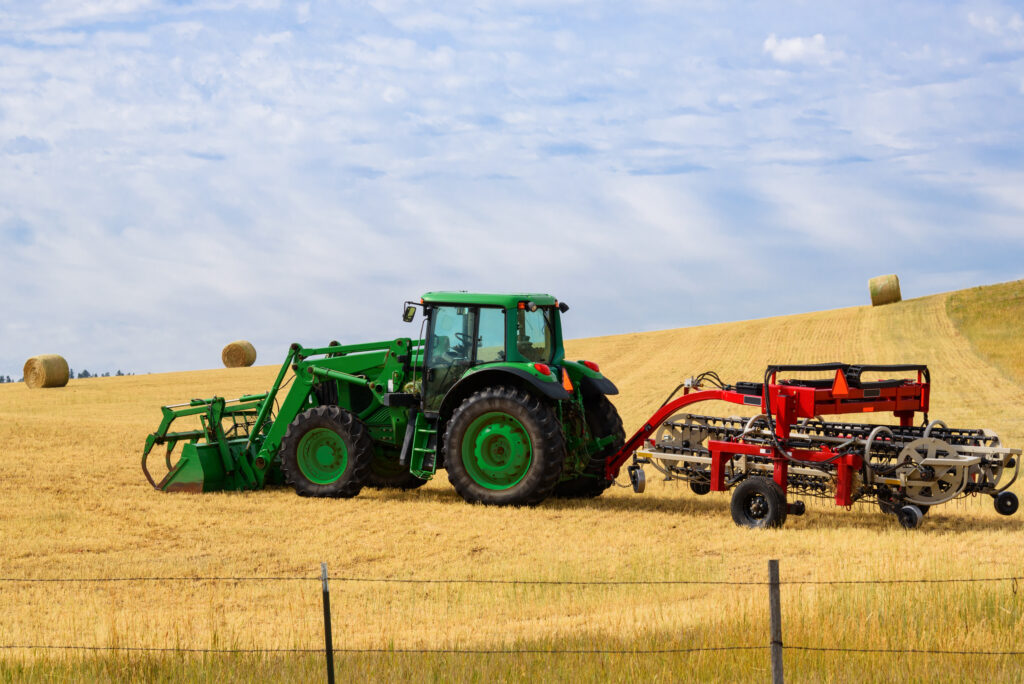Reposted from: https://dailyyonder.com/colorados-right-to-repair-law-could-save-farmers-time-and-money-and-spur-local-business/2023/05/10/
A Colorado law that loosens the grip of manufacturers on farm-equipment repairs could lower costs for farmers and jump-start business for independent mechanics.
“We’re gonna return a lot of money to the farmer’s pocket and reduce the burden that they suffer,” said Joe Van Wye, policy and outreach director for Farm Action, in an interview with the Daily Yonder.
Colorado’s new right to repair law goes into effect in January. It requires manufacturers to make manuals, parts, computer codes, and other information available for others to use.
Farmer advocates say the new law is a win for Colorado’s rural farmers who have to haul heavy equipment tens or hundreds of miles to the nearest “dealer-certified” technician for repairs they could fix closer to home.
“This [law] will really give independent repair guys an opportunity to capture some more business,” said Chad Franke, president of Rocky Mountain Farmers Union, in an interview with the Daily Yonder. “There’s a lot of guys that have got a truck loaded down with tools that they go out with… and help the local farmers, especially in the areas that don’t have a local dealership.”
In recent years, manufacturers have doubled down on protecting what they call “trade secrets” as agricultural equipment becomes more computerized, according to farmer advocates. Only dealer-certified technicians are allowed to repair this equipment, even if the fix is simply inputting a four-digit code to get two pieces of computerized machines to operate together, for example.
Farmers can be kept waiting for days or weeks due to a limited number of dealer-certified technicians, and local repair providers lose out on their business because of this requirement.
This can become a major issue for farmers: losing time to repairs during the growing season can mean the difference between staying in business or shuttering the barn doors, especially as small farmers fight to stay afloat in an industry dominated by a handful of corporations.
Waiting for repairs costs farmers in the United States approximately $3 billion every year, according to estimates from the U.S. Public Interest Research Group, a non-profit network of research organizations. Farmers in Colorado lose more than $43.5 million to downtime costs every year.
The new right-to-repair law could decrease these costs and bring new business to local repair providers, say farmer advocates.
Industry representatives from John Deere and Caterpillar did not respond to requests for comment on the law.
John Deere granted farmers and independent repair providers the right to repair their equipment earlier this year, but some skeptics voiced concern that the decision was an attempt to block state and federal right-to-repair legislation from being passed, according to reporting from NPR.
Between now and first of the year, farmer advocates and legislators will work through a rule-making process to determine how manufacturers will comply with the law.
While Colorado’s is the first right-to-repair law for agricultural equipment, efforts are ongoing to get similar laws passed in other states and at the federal level.
Last year, U.S. Senator Jon Tester from Montana introduced the Agricultural Right to Repair Act, which would have implemented the right to repair farming equipment nationwide. While the bill did not make it out of committee, farmer advocates are urging Senator Tester to reintroduce the bill.
They’re also pushing to include the right to repair in this year’s Farm Bill, which is currently being debated in Congress. Colorado’s new law has advocates hopeful the momentum will continue across the country.
“Once you buy that equipment, you should be able to choose whether the dealer services it, whether an independent repair guy services it, or whether you do it yourself,” Franke said. “I think Colorado finally getting this passed through has opened a lot of eyes that it hasn’t been happening and it’s something that [farmers] should be able to do.”




